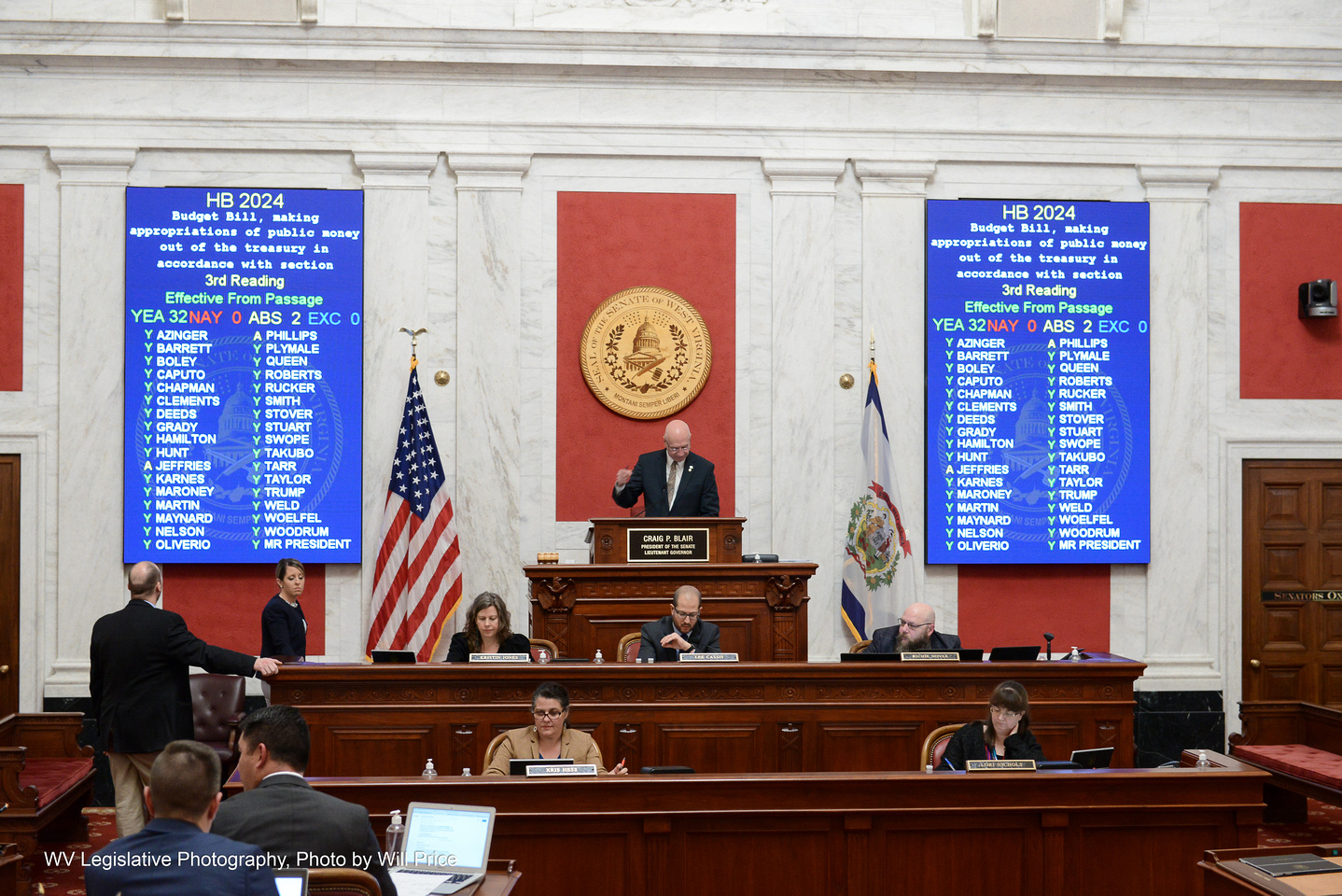With the Legislature paying more attention to the West Virginia Supreme Court’s spending, conversations continue about how lawmakers might have a hand in overseeing the budget of the judicial branch.
Chief Justice Allen Loughry gave a presentation to the House Finance Committee Friday morning where he tried to explain spending that has been criticized in recent months.
The state supreme court is not required to appear before legislative committees and give a presentation on their budget, which they themselves control. However, as a courtesy, it has been standard practice for the administrator of the West Virginia Supreme Court of Appeals during budget hearings at the Legislature.
Loughry spoke to the committee and took questions about some court expenditures, including the purchase of a sofa for $32,000, among other high-dollar purchases totaling more than $3.7 million to redecorate the Supreme Court justice’s Capitol offices.
“I think that this is absolutely a legitimate concern and question. There is nobody more outraged by these purchases than me. Many people in this room have known me for more than two decades and they know that I would have never approved of such things,” Loughry said.
“However, there was clearly a failure of oversight at the court. These things happened. We can’t go back and change them. But, what we can do is go forward and make sure that something like this never happens again,” the Chief Justice added.
Loughry also placed blame for some spending practices on the court’s prior administrator, Steve Canterbury, who was fired early last year. Loughry was elected to the court in 2012, assumed office in 2013 and took on his role as Chief Justice in 2017.
Legislative auditors announced this week they plan to audit the judicial branch’s finances.
When asked Friday morning for more details about spending across the court system, Loughry was unable to provide that information. However, he did promise Democrat Del. Mick Bates he would return with a report.
“I’m going to hold him to that. Until I get that, I’m not inclined to do anything with their budget,” Bates said.
Lawmakers in both the House and Senate have offered a resolution to amend the state’s constitution to put the court’s budget under their review. If passed, that resolution would go to West Virginia voters for final approval on a ballot.
Bates said the option of a constitutional amendment should be on the table. However, he said he is more concerned about oversight and transparency and argues that should not require a measure as strong as a constitutional amendment.
“I think we can which we should consider doing that. And I do see the argument against it. But, I think it’s something that we should consider doing. But irrespective of that, we are entitled — what the citizens of West Virginia are entitled to know is, ‘Where is this money going?’ for any agency,” Bates said, adding that the constitutional amendment issue involves the fact that the Legislature can’t reduce the judicial branch’s budget.
“I’m quite happy to give them $139 million. I just want to see where it’s going. I don’t think that’s an unreasonable request by me or anybody else. It doesn’t require a constitutional amendment to do that.”
Majority Leader Daryl Cowles agrees that a constitutional amendment is one of the top options and that he personally has supported such an effort in past sessions — even before reports of spending made headlines. He also said other options to achieve budgetary oversight are necessary at this point.
“We talked about some other things short of [a constitutional amendment that would put the court’s budget in the Legislature’s control] — putting them back under purchasing, stripping from them the ability to renovate their own spaces, other things that we could do,” Cowles said.
“There was a general consensus and feeling of transparency and open government and checks and balances. That what’s coming — just to what degree and what we need to do, I think, is still under consideration and in conversation,” Cowles added.
In an attempt to draw further attention to the issue of what he called the court system’s “irresponsible spending”, Democratic Del. Mike Pushkin called Thursday for a resolution to be introduced to investigate the possibility of impeaching Chief Justice Loughry. However, Republican leaders like Cowles don’t necessarily see such an effort gaining traction.
“I recognize that it is the reflection of the frustration that we all feel — that spending abuse happened. So, I see for what it is. It’s a reflection of the frustration. But I certainly don’t think we will head down that route,” Cowles said.
The West Virginia Supreme Court of Appeals is scheduled to provide a budget update during a Senate Finance Committee hearing at 3 p.m. Tuesday, Jan. 18.
